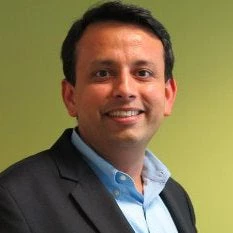My colleagues and I have been thinking and talking about the relevance of big data analytics from the international development point of view for some time now. We have been inspired by the work of the United Nations Global Pulse initiative and wondered whether and how the World Bank Group should engage.
So, around April, we started to look for big data driven initiatives within the World Bank Group (WBG) and found about 15 examples, simply through word of mouth. We invited our colleagues spearheading those initiatives for an informal conversation. We learnt that many faced similar challenges such as lack of access to certain types of data, a desire for world class data science expertise, lack of storage and computational capacity, a desire for good practices on handling privacy, platforms and norms to share data and software, opportunities for peer to peer learning, and the need for seed and growth funding to kick start the high potential, but often high risk big data initiatives.
We took this as an opportunity to develop shared capabilities for the World Bank Group to leverage and spread the use of big data and analytics in development. So in July 2014, we launched a new program called ‘Innovations in Big Data & Analytics for Development’ led by my team in partnership with our development economics, Transport and ICT, and enterprise technology groups.
Simply put the program aims to, (a) identify opportunities for using big data analytics for WBG financed operations and knowledge products; (b) incentivize the adoption of big data analytics in to Bank’s projects and products; and (c) support the WBG’s emerging work on big data.
To kick start the program, we launched the first WBG Big Data Innovation Challenge, in September. The Challenge received an overwhelmingly positive response with 130 proposals submitted from across the World Bank Group, surpassing our modest expectations.
The 14 winners just announced collectively received $1.5m in seed and growth funding, with individual awards ranging between $30k and $150k.
The surprise element wasn’t just the volume, but the spread and quality of proposals. We received high quality proposals from all 14 Global Practices, all six regions, and also IFC and several other enabling units such as enterprise technology, operational policy and country services.
The winning proposals included, amongst other good ideas, forecasting poverty and shared prosperity using cell phone data in Guatemala; using satellite imagery to monitor rural electrification in India; improving targeting and financial inclusion of the poor using call detail records; using a variety of big data for climate smart agriculture for enhancing and sustaining rice systems; and using GPS data from Uber to provide analytics to reduce traffic congestion, improve emergency traffic management and plan for public transportation and road infrastructure needs.
I’ll be sharing the details of the winners and finalists in my next blog post.
Please keep an eye on this blog for other posts on big data and development. You may also follow us on twitter @adarshdesai and @WBG_LeadINLearn
So, around April, we started to look for big data driven initiatives within the World Bank Group (WBG) and found about 15 examples, simply through word of mouth. We invited our colleagues spearheading those initiatives for an informal conversation. We learnt that many faced similar challenges such as lack of access to certain types of data, a desire for world class data science expertise, lack of storage and computational capacity, a desire for good practices on handling privacy, platforms and norms to share data and software, opportunities for peer to peer learning, and the need for seed and growth funding to kick start the high potential, but often high risk big data initiatives.
We took this as an opportunity to develop shared capabilities for the World Bank Group to leverage and spread the use of big data and analytics in development. So in July 2014, we launched a new program called ‘Innovations in Big Data & Analytics for Development’ led by my team in partnership with our development economics, Transport and ICT, and enterprise technology groups.
Simply put the program aims to, (a) identify opportunities for using big data analytics for WBG financed operations and knowledge products; (b) incentivize the adoption of big data analytics in to Bank’s projects and products; and (c) support the WBG’s emerging work on big data.
To kick start the program, we launched the first WBG Big Data Innovation Challenge, in September. The Challenge received an overwhelmingly positive response with 130 proposals submitted from across the World Bank Group, surpassing our modest expectations.
The 14 winners just announced collectively received $1.5m in seed and growth funding, with individual awards ranging between $30k and $150k.
The surprise element wasn’t just the volume, but the spread and quality of proposals. We received high quality proposals from all 14 Global Practices, all six regions, and also IFC and several other enabling units such as enterprise technology, operational policy and country services.
The winning proposals included, amongst other good ideas, forecasting poverty and shared prosperity using cell phone data in Guatemala; using satellite imagery to monitor rural electrification in India; improving targeting and financial inclusion of the poor using call detail records; using a variety of big data for climate smart agriculture for enhancing and sustaining rice systems; and using GPS data from Uber to provide analytics to reduce traffic congestion, improve emergency traffic management and plan for public transportation and road infrastructure needs.
I’ll be sharing the details of the winners and finalists in my next blog post.
Please keep an eye on this blog for other posts on big data and development. You may also follow us on twitter @adarshdesai and @WBG_LeadINLearn


Join the Conversation